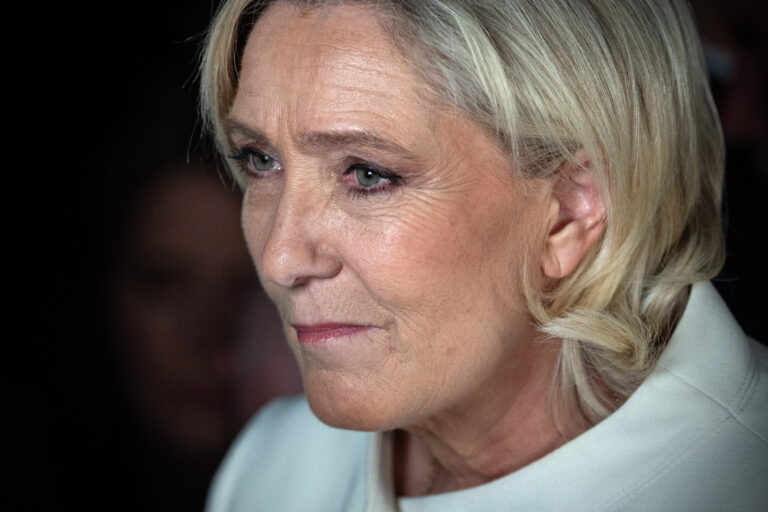A left-wing coalition has won the most seats in France’s second-round legislative elections, dealing a blow to the far right, which had hoped to capitalise on its first-round gains.
No one won an absolute majority in the 577-seat National Assembly, but official results put the left-wing New Popular Front group in first place with 180 seats, ahead of the 160 seats of President Emmanuel Macron’s centrist alliance, which called the early vote a month ago.
An expert on French politics said Newsweek that the elections had “deepened polarization” in France, while another said Macron had been left “weakened.”
In third place is the far-right National Rally and its allies with 140 seats, which, while its best result to date, is far from the 289 seats needed to control parliament.
GETTY
People took to the streets across France to celebrate the victory over the anti-immigration party, historically linked to anti-Semitism and racism, which opponents feared would give France its first far-right government since World War II.
But the country, at the heart of Europe and NATO, is plunged into the uncertainty of a parliament without an absolute majority, with no group obtaining a majority.
Prime Minister Gabriel Attal, who plans to resign later Monday, said France was facing an “unprecedented political situation,” the Associated Press reported.
By declaring: “I did not choose this dissolution”, Attal seems to be attacking Macron’s decision to call elections, which follow the defeat of his group in the European elections against the party of Marine Le Pen and her protégé Jordan Bardella.
The NFP pushed Macron to give the left-wing alliance the first chance to form a government and nominate a prime minister, with one of the coalition’s leaders, Jean-Luc Mélenchon of La France Insoumise, saying it “is ready to govern.”
Following the results of last Sunday’s first round, in which the National Rally won 33.4 percent of the votes cast nationally, the third-placed candidates from the left and center dropped out in order to consolidate the vote against the far right.
While the left and center’s maneuver to serve as a bulwark against the far right worked, Macron’s gamble to call elections in the first place did not, according to former French ambassador to the United States Gérard Araud.
“Macron has lost his bet on clarification with voters,” Araud said in a statement emailed to Newsweek“He is weakened, but resignation and realism are not his strong points,” he predicted. He predicted that the aftermath of the elections would be marked by “a long crisis full of uncertainties and political instability.”
A common phenomenon in other parts of Europe, a coalition is alien to France and would require a split from the NFP or a collaboration by Macron’s centrists with the center-left Socialist party, leaving aside La France Insoumise, said Araud, a fellow at the Atlantic Council think tank.
“The coming weeks will indeed be a test to determine whether the left and the centre are capable of cooperating,” he added.
Sébastien Maillard, a research associate at the Europe programme at London-based think tank Chatham House, believes that a hung parliament will force French political parties to compromise. “It’s not a culture they have, compared to many other parliamentary systems elsewhere in Europe,” he said. Newsweek.
“The bargaining will be tough, but power is shifting from the Elysée to the National Assembly, which is something new under the Fifth Republic.
“France will weaken its leadership within the EU if this state of confusion lasts too long. The country now needs reconciliation after increased polarization due to these early elections.”
Uncommon knowledge
Newsweek is committed to challenging conventional wisdom and finding connections in the search for common ground.
Newsweek is committed to challenging conventional wisdom and finding connections in the search for common ground.


